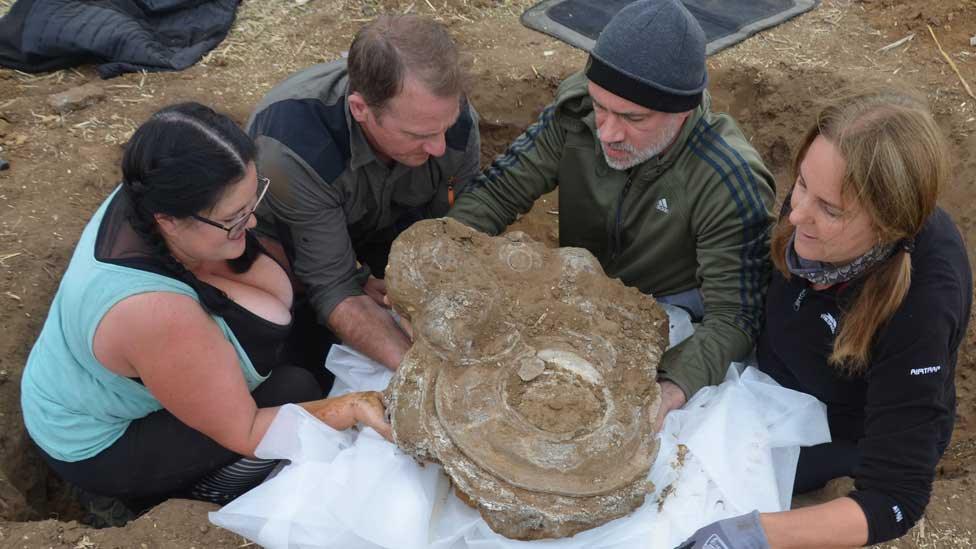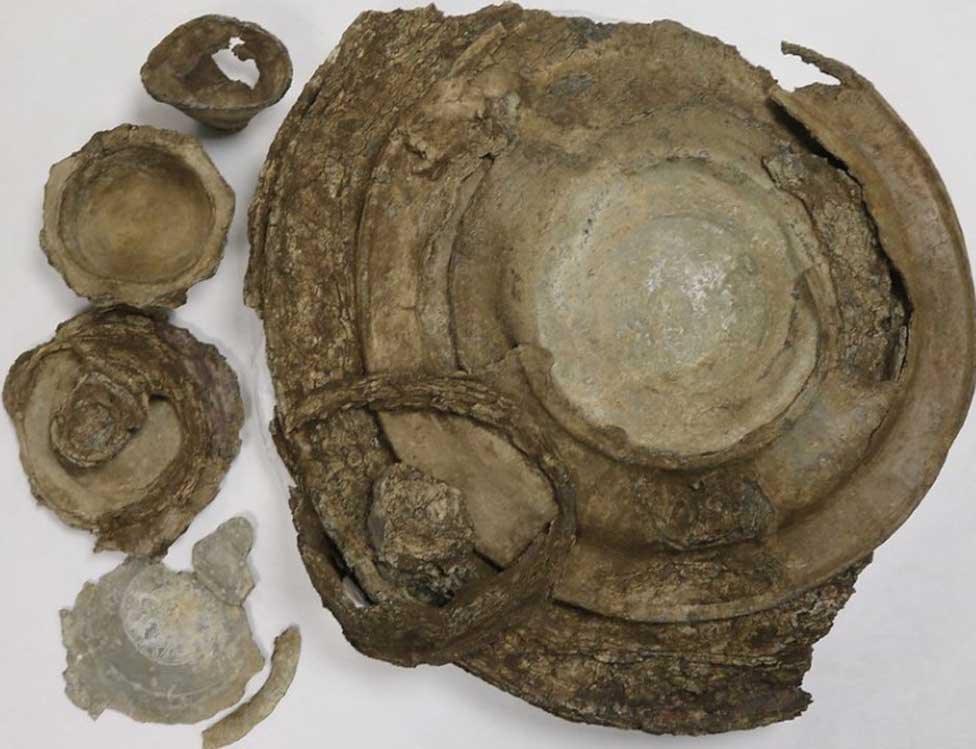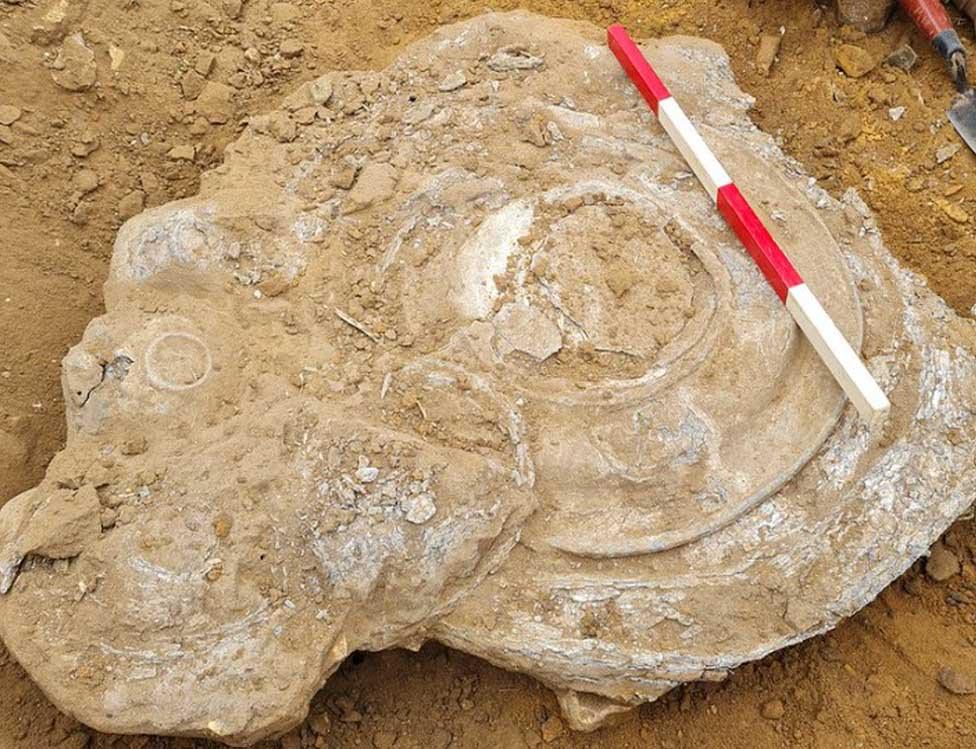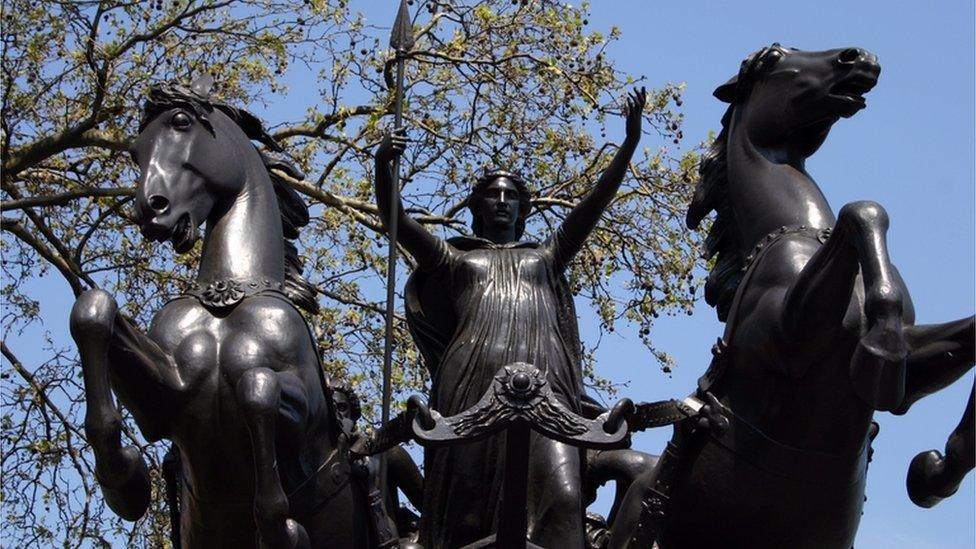Suffolk Roman hoard found on Euston estate goes on display
- Published

The Euston hoard was excavated by Wardell Armstrong and Norfolk Museum Service conservators
A "significant" hoard of Roman items discovered in Suffolk has gone on display.
Pewter plates, platters, bowls and a cup were found in Euston last year by a local metal detectorist.
The way the vessels were buried suggests they had been placed "possibly for safe keeping or an offering", experts said.
They will be on display at the West Stow Anglo-Saxon village, near Bury St Edmunds, until January 2024.

Pewter plates, platters, bowls and a cup were found
The hoard was discovered in September 2022 on the Duke of Grafton's Euston estate by Martin White, who was taking part in an organised detecting event.
Suffolk County Council Archaeological Service organised their excavation and Norfolk Museum Service conserved the finds.
Britain was part of the Roman Empire from the invasion under the emperor Claudius in AD 43 until the early 5th Century.
The council service said the remains of the vessels were from the late Roman period and were found buried in a pit and "carefully stacked, suggesting that they were placed as a single group, possibly for safe keeping or an offering".
As the hoard is Roman and made of pewter, it does not qualify as Treasure under the 1996 Treasure Act.

The vessels were found buried in a pit and "carefully stacked"
Faye Minter from Suffolk County Council's Archaeological Archives said it was "a significant discovery".
"The larger plates and platters were used to allow food to be served communally and the octagonal bowls may have a Christian reference," she said.
"Similar hoards are found across southern Britain, including from the nearby large Roman settlements at Icklingham and Hockwold."
Mr White said he had been detecting for about 10 years, and this, his "most high profile find", was "very exciting".
"It was a privilege to be involved in the whole process, from discovery to excavation to seeing the finds go on display," he said.
Councillor Ian Shipp, from West Suffolk Council, which runs West Stow Anglo-Saxon Village, said the find "added a new strand" to the story of the area's past in the later Roman period - a time just before the settlement at West Stow was beginning.
The Duke of Grafton said the estate was happy to donate the hoard so that everyone could "share in the joy of this historic Suffolk find".

Find BBC News: East of England on Facebook, external and Instagram, external. If you have a story suggestion email eastofenglandnews@bbc.co.uk or get in touch via WhatsApp on 0800 169 1830
Related topics
- Published21 May 2022

- Published15 July 2019
